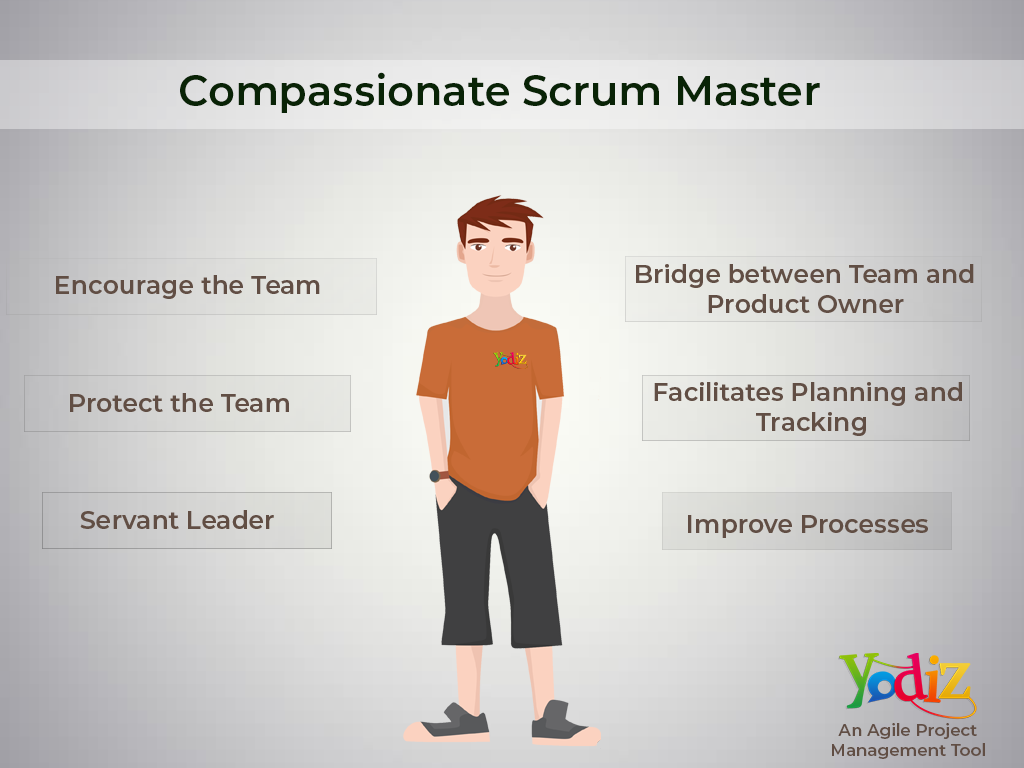
Who is a Scrum Master and What is Their Significance?
A scrum master is a core team member of an agile team. They ensure that an agile team works in accordance with the Scrum Values. They facilitate a team to keep the pace of work using agile techniques. In order to fulfill the prerequisites and attaining the necessary knowledge to lead an agile team, excelling a scrum master certification or working in an agile environment is helpful.
From agile project statistics, it is evident that work processes are not enough for the success of a project. A competent team may fail in delivering a project if the environment they are working in is not supportive.
A scrum master is the one who can play an influential role in creating such an environment. They have to possess proficient communication and managerial skills. They need excellent team building skills to keep their teams aligned and coordinated. They are known for listening and helping solve any problems that the team may have.
In agile guides, you learn that a scrum master is a critical member but cannot exercise any authority on their teams. However, they do have the authority on defining the process of the work. They guide the agile team and ensure if the team and the product owner are implementing the agile processes. Thus, they are only effective as much as their team is.
A scrum master cannot command the team. They are at no authority to fire a team member of a team. They can, however, change the pattern of how work is being done. For example, a scrum master can change the number of sprints that need to be done in a month or suggest a smaller sprint duration for the team after a hectic sprint release to avoid team burnout.
So how does a scrum master help in achieving the team’s goals? What do they possess aside from being good in building a good relationship with the team and eliminating impediments, that makes them become an integral part of an agile team? The answer to that can be explained with a simple concept; servant leadership.
What is Servant Leadership?
“The purpose of human life is to serve, and to show compassion and the will to help others.” – Albert Schweitzer
Servant Leadership is a concept popularized by Robert Greenleaf in 1970 with his publication “The Servant as the Leader”
A servant leader possesses empathy and compassion for their team. It is when the leader of a team puts the teams’ needs in front of theirs. They help, develop and nurture the teams to perform as highly as they can.
A servant leader supports and encourages the team members to grow by creating an environment where they are sheltered from any disturbances that may disrupt their work. They eagerly identify and remove any impediments for the team. These attributes are similar to that of what a scrum master does and half of their job description.
“Empathy is seeing with the eyes of another, listening with the ears of another and feeling with the heart of another”
How to be empathetic, and persuasive?
A scrum master needs to exercise empathy and compassion for their team. They also work to establish an environment where their teams can flourish. A scrum master educates the team to be aware of their potential. This is done by showing them the sprint velocity chart and at the same time empowering them to decide the amount of work they do within a defined period of time. This maintains a team focus on obtaining its goal.
Scrum masters are known for listening and resolving any problems that their team members might be facing. Being empathetic, compassionate and persuasive are prerequisites of efficient scrum masters. They have to mediate any issues that may arise amongst the team. A scrum master needs to possess excellent team building, decision making, and communication skills. So that for any new or challenging situation that may arise, it is the scrum master that gracefully leads the team to its ultimate success.
Whether it is business or personal if a team member is undergoing any personal issue that will eventually reflect in their work. It is the Scrum master’s job to realize the situation, identify this hindrance and empathize. In the long run, this skill helps to actualize the true potential of a team.
Conclusion
A scrum master has to be a constant source of motivation for their teams because, in the end, it is the entire team’s effort to drive the project. A scrum master cannot be held accountable or blamed for unfavorable situations or the result of the sprint. Becoming a compassionate scrum master is not only practicing work processes. Rather creating and developing an empathetic mindset. This may seem overwhelming but given the dedication to learn and the drive to change, it is easy to learn all the relevant skills and become a humane and commiserate scrum master.
“To be successful a ScrumMaster will need to influence others both on the team and outside it.” – Mike Cohn

Yodiz is an innovation leader in Agile Project Management tools. We have customers from 60+ countries who get benefit of using seamless experience of agile practices without worrying about setup and administration settings.
If you would like to talk with Yodiz to see how you can benefit from an agile management tool, then contact us and we will arrange a meeting for you with one of our experts.
